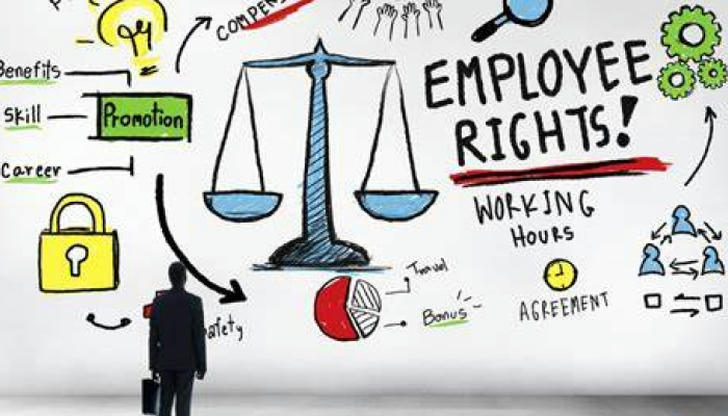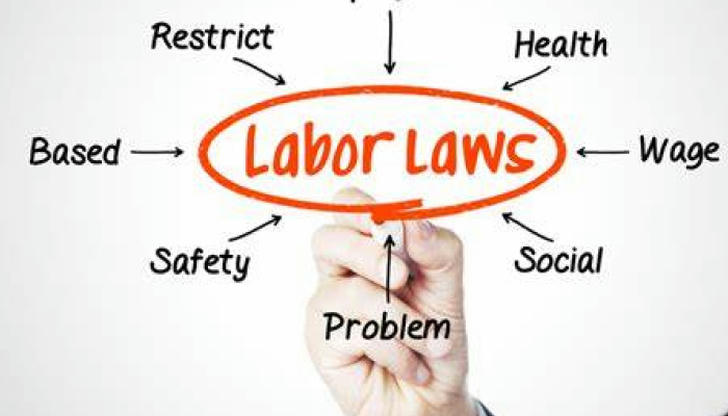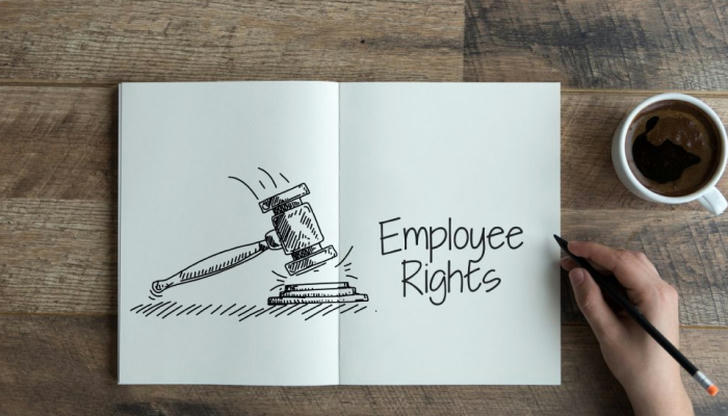Global Labor Rights and the Responsibility of Multinational Corporations

In the era of globalization, multinational corporations (MNCs) have become powerful actors in the global economy. Operating in numerous countries and with vast supply chains that span continents, MNCs have the ability to influence labor markets, economies, and even local cultures. While these companies can contribute to economic development, they also face increasing scrutiny regarding their treatment of workers, particularly in developing countries where labor laws may be weaker, and enforcement is often lax. Labor rights are fundamental human rights that include fair wages, safe working conditions, the right to form unions, and protection from exploitation. The question of how multinational corporations uphold labor rights in their global operations and supply chains is a pressing issue in the modern business and human rights landscape. This article examines the responsibilities of multinational corporations in respecting global labor rights, the challenges they face in doing so, and the role of international organizations and governments in enforcing labor standards.
The Rise of Global Supply Chains and Labor Exploitation
In the late 20th and early 21st centuries, globalization led to the creation of complex global supply chains. Companies began outsourcing manufacturing and service operations to countries with lower labor costs to maximize profits. This trend, while beneficial in terms of reducing production costs and increasing access to markets, has also created significant challenges for labor rights. The migration of jobs to countries with less stringent labor laws has resulted in numerous instances of labor exploitation. In these countries, workers are often subjected to unsafe working conditions, long hours, child labor, and extremely low wages. The garments industry, for example, has been notorious for its labor rights violations in countries like Bangladesh, Cambodia, and Vietnam. Workers in these countries are often paid poverty wages, work in hazardous conditions, and are denied the right to organize into unions.

MNCs have been criticized for benefiting from these exploitative practices while often turning a blind eye to the conditions in their supply chains. While some companies have responded by issuing codes of conduct or partnering with third-party organizations to monitor conditions, these efforts have sometimes been insufficient or merely cosmetic, failing to address the root causes of exploitation.
The Role of Multinational Corporations in Upholding Labor Rights
Multinational corporations have an inherent responsibility to ensure that their operations, both directly and within their supply chains, respect labor rights. This responsibility goes beyond mere compliance with local labor laws; it requires companies to adopt and enforce international labor standards. Companies must consider the impact of their operations on workers in all parts of the world, and take active steps to improve their conditions. 1.Establishing Ethical Supply Chains MNCs should implement transparent, ethical sourcing practices that promote fair wages, safe working conditions, and the protection of workers’ rights. This includes conducting regular audits of suppliers and factories, ensuring that they adhere to labor laws and industry standards, and investing in training programs for both workers and management on labor rights. 2.Several companies have started to take the lead in promoting ethical labor practices. For instance, companies like Patagonia and Fairphone have made it their mission to improve labor conditions in their supply chains. Patagonia, in particular, has been lauded for its commitment to fair labor practices and environmental sustainability. By making ethical sourcing a central part of their business model, these companies have demonstrated that corporate social responsibility (CSR) can go hand in hand with profitability. 3.Corporate Social Responsibility (CSR) and Accountability Corporate social responsibility (CSR) refers to the ethical obligation that companies have towards their employees, communities, and the environment. CSR includes ensuring that businesses do not contribute to human rights abuses or environmental degradation. For multinational corporations, CSR programs that focus on labor rights are critical in ensuring that the company does not exploit workers in low-wage countries. 4.MNCs must be held accountable for ensuring that their supply chains are free from exploitative practices. This means not only relying on external audits but also providing channels for workers to report abuse or unsafe conditions without fear of retaliation. Companies should also actively engage in creating opportunities for workers to unionize and participate in collective bargaining. 5.Transparency and Public Reporting Increasingly, consumers and stakeholders expect transparency from companies regarding their labor practices. This has led to the rise of public reporting requirements, such as the UK Modern Slavery Act of 2015, which mandates companies with over a certain revenue threshold to disclose the steps they are taking to address slavery and human trafficking within their supply chains.

6.Transparency is key to holding MNCs accountable for labor rights abuses. Regular public reporting and third-party verification can help ensure that companies are not only adhering to ethical standards but are also improving their labor practices over time. However, critics argue that many companies’ CSR reports are vague and do not offer sufficient detail on their labor practices or the impact of their supply chains on workers.
The Challenges of Ensuring Labor Rights in Global Supply Chains
Despite the clear responsibility of MNCs to uphold labor rights, several challenges make it difficult to ensure compliance across global supply chains. 1.Weak Enforcement of Labor Laws in Developing Countries One of the main challenges in ensuring labor rights is the weak enforcement of labor laws in many developing countries. Many governments in low-wage countries prioritize economic growth over labor protections, and lack the resources or political will to enforce labor standards. This creates a gap where MNCs can profit from cheap labor without facing significant legal repercussions. 2.In countries with weak labor protections, workers may be unable to organize or advocate for better conditions, and the risk of retaliation from employers is high. In such environments, MNCs may be tempted to overlook labor abuses to reduce costs, which undermines their ethical responsibility. 3.The Informal Economy and Outsourcing Much of the labor force in developing countries works in the informal economy, where workers are not covered by labor laws and do not have access to benefits such as health insurance, paid leave, or retirement savings. Outsourcing to informal workers, especially in industries like agriculture or textiles, makes it difficult for MNCs to ensure labor standards are being met. 4.Informal workers are often more vulnerable to exploitation because they lack legal protections or the ability to form unions. For example, migrant workers in the Middle East often face abuses such as passport confiscation, withheld wages, and unsafe living conditions, all of which are difficult to monitor or regulate. 5.Cultural and Political Differences Labor standards and expectations differ across countries, and cultural norms may influence how labor rights are perceived and enforced. For example, child labor is still prevalent in some countries, even though it is widely condemned internationally. MNCs operating in these countries face the difficult task of navigating local customs while adhering to international labor standards. 6.Moreover, in some countries, political instability and corruption can hinder the enforcement of labor laws, making it harder for companies to ensure that their suppliers are upholding human rights. MNCs operating in such regions may find it challenging to balance the need for profit with the desire to promote ethical labor practices.
The Role of International Organizations and Governments
Given the challenges associated with enforcing labor rights in global supply chains, the role of international organizations and governments is crucial in ensuring that multinational corporations are held accountable. 1.International Labor Organization (ILO) The International Labour Organization (ILO), a specialized agency of the United Nations, plays a key role in promoting labor rights and setting international labor standards. The ILO has established a series of conventions that define fundamental labor rights, including the right to freedom of association, the elimination of forced labor, and the abolition of child labor. 2.MNCs that are committed to ethical labor practices should adhere to these conventions and integrate them into their operations. While the ILO does not have the authority to enforce these standards directly, its conventions serve as a framework for governments and businesses to follow. 3.Government Regulations and Trade Agreements Governments have a critical role to play in regulating labor standards within their own countries and ensuring that multinational corporations comply with national labor laws. Additionally, trade agreements between countries can include labor rights provisions that require companies to meet certain standards for workers' rights, especially when trading with countries with weaker labor laws. 4.Governments can also create incentives for companies to adopt ethical labor practices by offering tax breaks or other benefits to companies that demonstrate compliance with international labor standards. For instance, the U.S. and European Union have implemented trade policies that link labor rights to trade preferences, encouraging countries to improve labor standards in exchange for better trade terms.
Conclusion
Multinational corporations have a significant responsibility to ensure that their operations respect labor rights, both within their own operations and across their global supply chains. The rise of globalization and the outsourcing of labor to low-wage countries has led to significant challenges in enforcing labor rights, as MNCs often take advantage of weak labor laws and informal labor markets. However, through ethical sourcing practices, transparency, and active engagement with labor unions, MNCs can play a crucial role in improving labor conditions worldwide.

The responsibility for ensuring labor rights cannot rest solely on the shoulders of corporations. Governments, international organizations, and consumers must also play an active role in promoting fair labor practices and holding corporations accountable for their actions. By working together, we can ensure that globalization benefits not only businesses but also the workers who are the backbone of the global economy.
